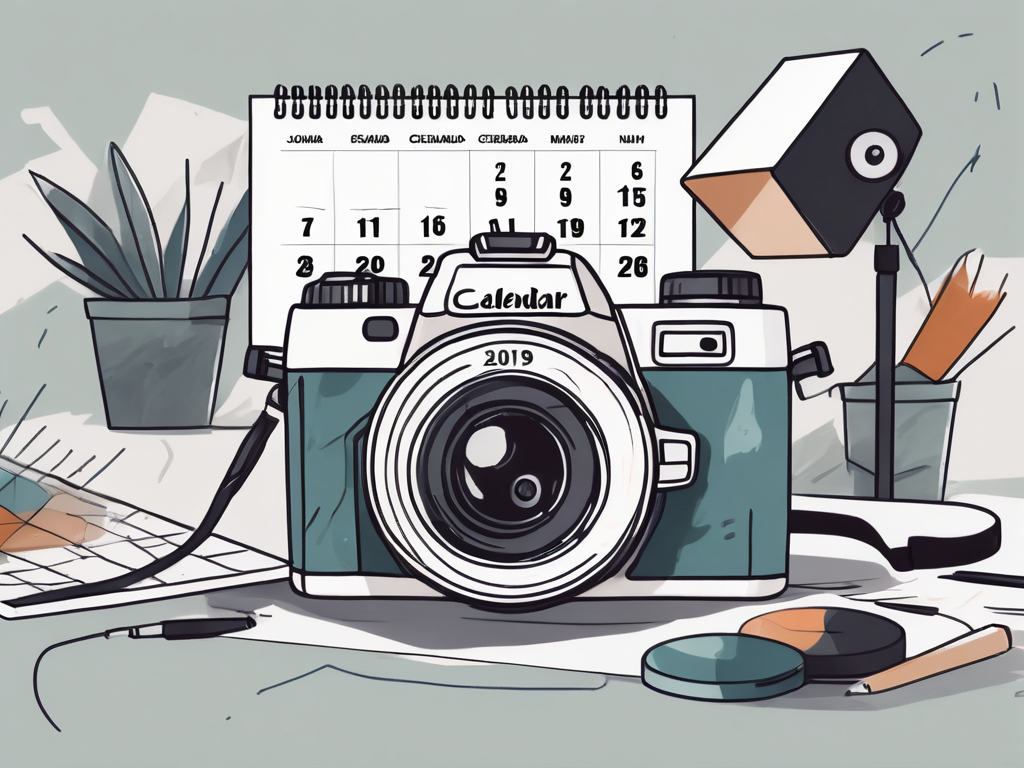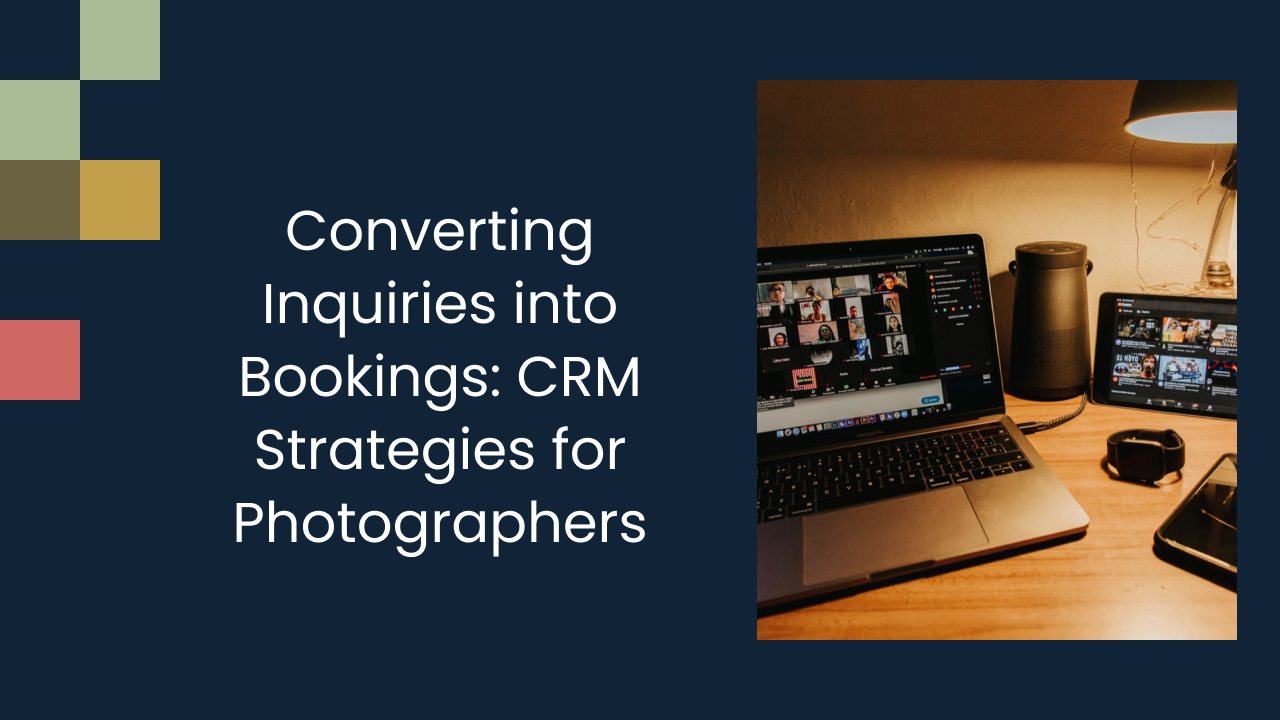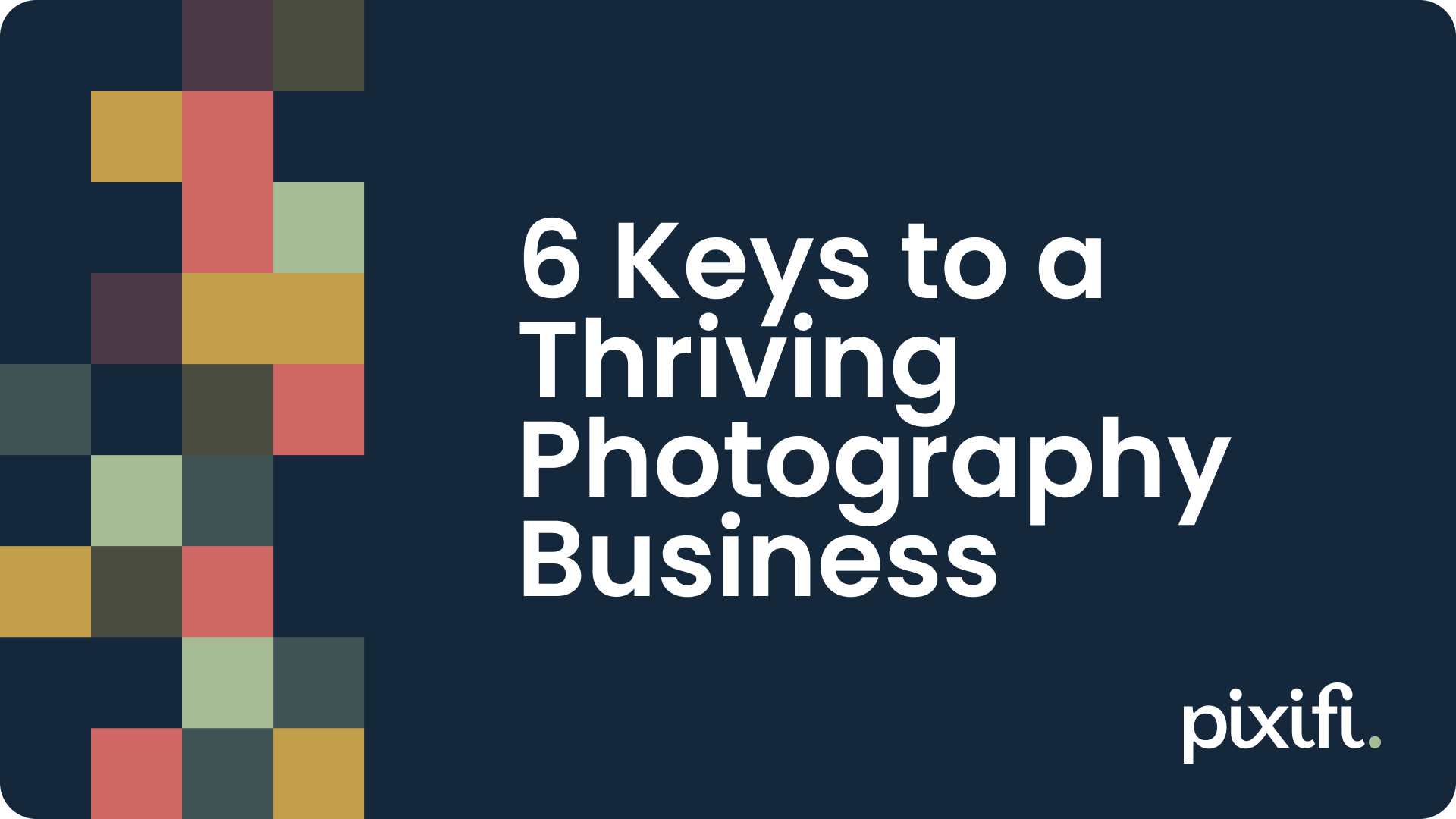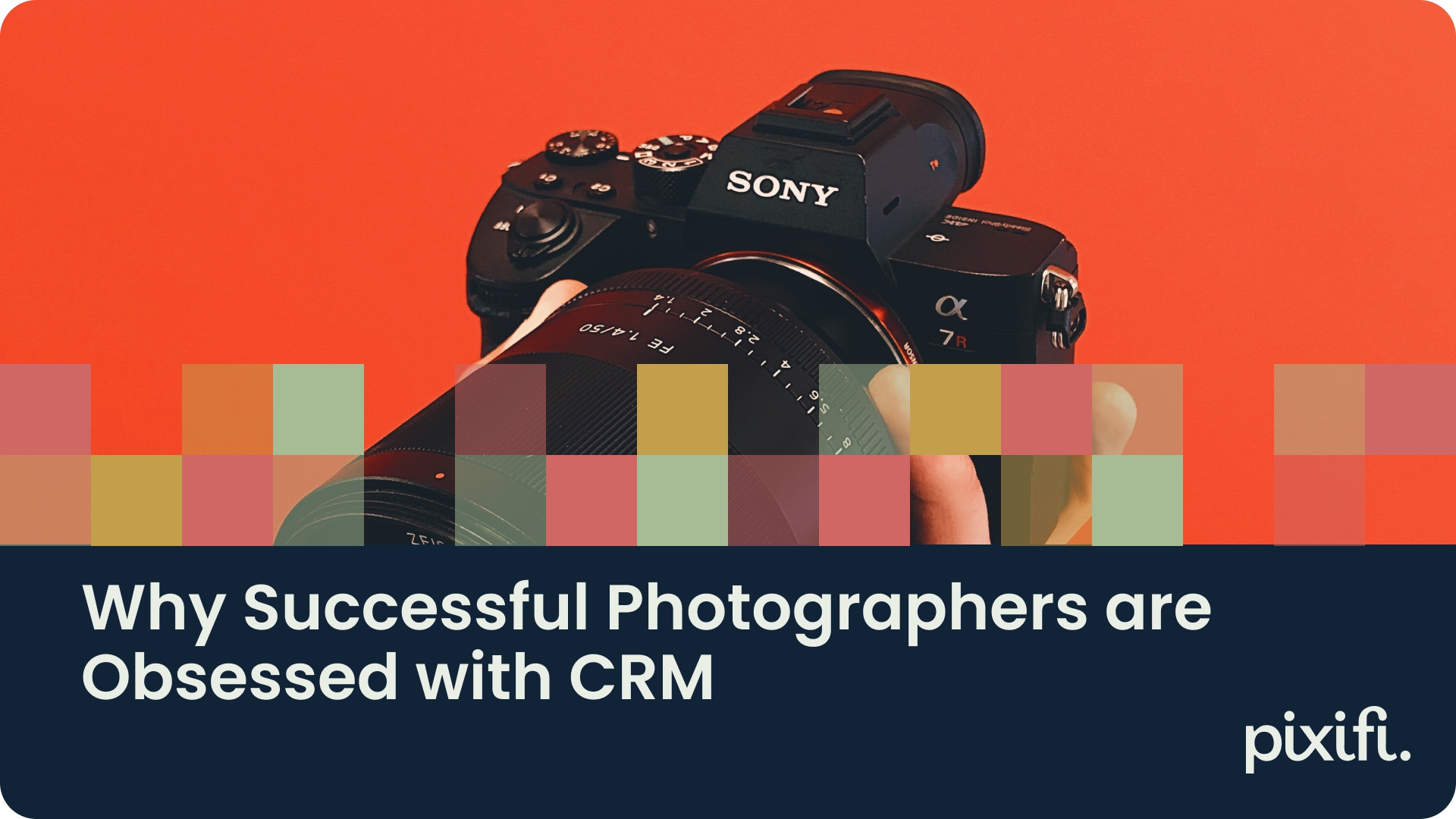Converting Inquiries into Bookings: CRM Strategies for Photographers

In today's competitive photography industry, converting inquiries into bookings is a crucial aspect of running a successful business. Without effective customer relationship management (CRM) strategies in place, photographers risk losing potential clients and missing out on valuable opportunities. In this article, we will explore the importance of CRM in the photography business and discuss how photographers can use CRM to identify potential clients, turn inquiries into bookings, and enhance client relationships. We will also provide guidance on choosing the right CRM for your photography business.
Understanding the Importance of CRM in Photography Business
Customer relationship management is a vital component of any photography business. It involves managing interactions with potential and existing clients, organizing client data, and streamlining communication processes. By implementing CRM strategies, photographers can effectively track and nurture client relationships, ultimately leading to increased bookings and customer satisfaction.
The Role of CRM in Client Management
One of the primary benefits of using CRM in photography businesses is its ability to streamline client management. By centralizing client information, photographers can easily retrieve and update details such as contact information, project preferences, and communication history. This organized approach enables photographers to provide personalized experiences and build long-term relationships with their clients. Moreover, CRM systems can automate routine tasks, freeing up time for photographers to focus on creative pursuits.
Benefits of CRM for Photographers
CRM offers numerous benefits to photographers. Firstly, it allows for efficient lead management and tracking. By capturing and analyzing data from inquiries, photographers can identify potential clients and target their marketing efforts accordingly. Additionally, CRM systems facilitate effective communication and follow-up strategies. By automating reminders and personalized messages, photographers can keep clients engaged and informed throughout the booking process, increasing the chances of securing their business.
Furthermore, CRM software often includes features such as calendar management, contract generation, and invoicing, making it easier for photographers to manage project workflows and administrative tasks. This ensures a seamless experience for both the photographer and the client, enhancing overall satisfaction.
Another advantage of CRM in photography business is its ability to provide valuable insights and analytics. By tracking client interactions and preferences, photographers can gain a deeper understanding of their target audience and tailor their services accordingly. This data-driven approach allows photographers to make informed business decisions and optimize their marketing strategies.
Moreover, CRM systems can also help photographers in managing their inventory and equipment. By keeping track of equipment availability, maintenance schedules, and rental history, photographers can ensure that they have the necessary tools for each project. This level of organization not only improves efficiency but also enhances the overall professionalism of the photography business.
Identifying Potential Clients through CRM
A key aspect of CRM for photographers is its effectiveness in identifying potential clients and generating leads. By collecting and analyzing data from inquiries, photographers can gain valuable insights into their target market and tailor their marketing efforts accordingly.
Moreover, CRM systems offer a comprehensive view of client behavior and preferences, allowing photographers to anticipate their needs and provide personalized services. By segmenting clients based on their preferences and purchase history, photographers can create targeted marketing campaigns that resonate with each segment, ultimately increasing conversion rates and client satisfaction.
Furthermore, CRM software provides photographers with the ability to integrate social media data, enabling them to track engagement levels and identify potential leads from various social platforms. By analyzing social media interactions and sentiment, photographers can gauge the interest of potential clients and tailor their outreach efforts to effectively engage with them.
Using CRM for Lead Generation
CRM systems allow photographers to easily capture and categorize inquiries, providing valuable data for lead generation. By tracking the source of inquiries, photographers can identify which marketing channels are most effective in attracting potential clients. This information can then inform their marketing strategies, allowing them to allocate resources and focus on the channels that yield the best results.
Tracking Client Interactions
CRM software enables photographers to track client interactions, ensuring that no opportunity falls through the cracks. By recording communication history and actions taken, photographers can ensure timely follow-ups and personalized responses. This level of organization and attention to detail can greatly impress potential clients and increase their likelihood of booking a session.
Turning Inquiries into Bookings
Once potential clients have shown interest by making inquiries, it is crucial for photographers to have effective strategies in place to convert those inquiries into bookings. CRM systems can play a critical role in streamlining this process.
Building a strong online presence through social media platforms and a professional website can also significantly impact the conversion of inquiries into bookings. By showcasing a portfolio of past work, client testimonials, and pricing packages, photographers can build credibility and trust with potential clients. This transparency helps clients make informed decisions and increases the likelihood of them booking a photography session.
Effective Communication Strategies
Clear and timely communication is essential in turning inquiries into bookings. CRM systems provide tools for automating email responses and reminders, ensuring that photographers can respond promptly and professionally to inquiries. Additionally, CRM software can facilitate personalized communication by storing information about client preferences, enabling photographers to tailor their responses and offers to match each client's unique needs.
Engaging with potential clients through multiple communication channels, such as phone calls, emails, and social media messages, can further enhance the conversion rate of inquiries into bookings. By offering different ways for clients to reach out and receive information, photographers can cater to various preferences and ensure a seamless booking process.
Utilizing CRM for Follow-ups
CRM systems are particularly valuable for managing follow-ups with potential clients. By automating reminders for follow-up calls or emails, photographers can maintain ongoing communication and reinforce their interest in working with the client. This level of attentiveness makes clients feel valued and increases the chances of securing bookings.
Furthermore, offering incentives such as limited-time discounts or special packages in follow-up communications can create a sense of urgency and encourage potential clients to finalize their booking decisions. By leveraging CRM systems to track client interactions and preferences, photographers can tailor these incentives to align with each client's specific interests, increasing the effectiveness of follow-up strategies.
Enhancing Client Relationships with CRM
Client relationships are the foundation of a successful photography business. By utilizing CRM strategies, photographers can enhance client experiences and cultivate long-term relationships.
Building strong client relationships is not just about delivering exceptional photographs; it's also about creating a seamless and personalized experience from start to finish. CRM systems play a crucial role in achieving this by allowing photographers to anticipate their clients' needs and preferences, thereby exceeding expectations at every touchpoint.
Personalizing Client Experiences
CRM systems allow photographers to store detailed information about each client, such as their preferences, past projects, and special occasions. This data enables photographers to provide highly personalized experiences, ensuring that each client feels valued and understood. By tailoring their services to meet individual needs, photographers can create memorable experiences that leave a lasting impression.
Moreover, personalization goes beyond just knowing a client's favorite color or preferred shooting style. It involves understanding their unique story, vision, and goals, allowing photographers to tailor their approach in a way that resonates deeply with the client. This level of personalization not only strengthens the client-photographer bond but also sets the stage for collaborative and meaningful photo sessions.
Maintaining Long-term Client Relationships
CRM software helps photographers maintain long-term relationships with their clients by providing tools for ongoing communication and follow-ups. By sending personalized messages on special occasions or anniversaries, photographers can keep in touch with clients even after projects are completed. This not only encourages repeat business but also increases the likelihood of referrals as satisfied clients are more likely to recommend the photographer to their friends and family.
Furthermore, CRM systems can track important milestones in clients' lives, such as birthdays, weddings, or the birth of a child, allowing photographers to reach out with heartfelt messages or special offers that celebrate these moments. By showing genuine interest and care beyond the initial transaction, photographers can turn one-time clients into loyal advocates who champion their work within their social circles.
Choosing the Right CRM for Your Photography Business
With a wide range of CRM options available, it is crucial for photographers to choose the right CRM system for their specific needs. Here are some key features to consider:
Key Features to Look for in a CRM
When selecting a CRM for your photography business, prioritize features such as contact management, lead tracking, automated communication, and ease of use. Additionally, consider whether the CRM integrates with other tools you use, such as calendar and invoicing software. Customizability and scalability are also important factors to consider, ensuring that the CRM can adapt to your business's evolving needs.
Top CRM Options for Photographers
There are several CRM options available that cater specifically to photographers. Some popular choices include Táve, HoneyBook, and Pixifi. These CRM systems offer specialized features tailored to the unique requirements of photography businesses, making them ideal options for photographers looking to streamline their workflows and enhance client management processes.
Looking for an easier way to manage and grow your studio? Experience a platform built by a photographer, for photographers. Try it free for 2 weeks.











